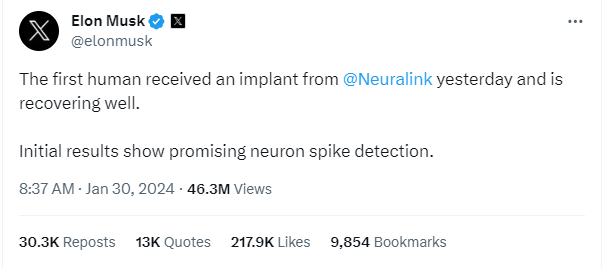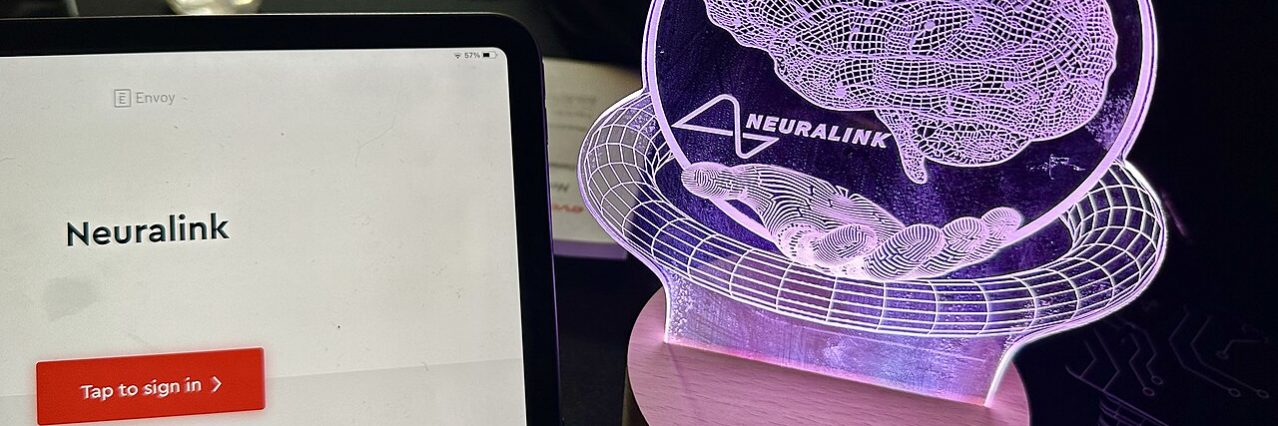On Sunday, Neuralink, the neurotechnology company co-founded by Elon Musk, implanted a chip into a human patient for the first time. Image: Steve Jurvetson, via Wikimedia Commons
On Sunday, Neuralink, the neurotechnology company co-founded by Elon Musk, implanted a chip into a human patient for the first time.
Co-founded in 2016 by Tesla and SpaceX CEO Elon Musk, Neuralink aims to establish direct communication channels between the brain and technology by inserting a computer chip into the brain.
The lofty goals of this technology include to treat neurological disorders such as ALS or Parkinson’s.
Musk also believes that future iterations of the technology would enhance the potential of human capabilities by enabling the brain to connect directly with computers.
“Imagine if Stephen Hawking could communicate faster than a speed typist or auctioneer. That is the goal,” said Musk.
The technology works via an implant device, approximately the size of a few stacked coins, and is inserted into the brain through an invasive surgery.
“It actually fits quite nicely in your skull,” said Musk previously about the device.
“It could be under your hair and you wouldn’t know.”
Not much is known about Neuralink’s first human test subject, however, Musk said on X (Twitter) that the initial results showed “promising neuron spike detection.”

Previously, the chip has been tested on monkeys, which Musk said were terminally ill prior to receiving the implants.
He asserted that chip did not cause any deaths in the animals.
“Neuralink has never caused the death of a monkey… in fact, we now have monkeys who have had Neuralink implants for two to three years, and they’re doing great,” said Musk last year.
However, a report published by WIRED challenges many of these claims.
Speaking anonymously, a doctoral candidate conducting research at the CNPRC was sceptical about the claim that the monkeys were already living with terminal illness.
“These are pretty young monkeys,” they said.
“It’s hard to imagine these monkeys, who were not adults, were terminal for some reason.”
The report also details complications experienced by the animals following their surgery, including pain, emotional distress, infection and damage to the cerebral cortex.
At least three monkeys were euthanised following the insertion of the Neuralink chips.
Despite this, Neuralink was granted approval from US regulators last year to test the chips on human subjects.
Neuralink aren’t the only company in the brain-chip department, either.
Australia-based developer Synchron have developed a similar technology which does not require invasive surgery to install.
The first Synchron device was implanted on a human patient in July 2022.





